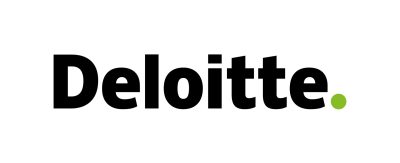Never waste a crisis


One of my favourite childhood memories was Dad building a large bonfire on the farm and Mum and I would make damper to cook and eat beside the bonfire that evening. Dad taught us from a young age the dangers of a bonfire and always had access to the garden hose.
But what does this have to do with the current Inflation/recession crisis you may ask?…
Covid stimulus, supply chain issues, closed borders, tight skilled labour market, Auckland flooding and Cyclone Gabrielle have become compounding problems creating a mighty bonfire of their own.
Consumers are now struggling to cook their damper and toast their marshmallows.
Adrian Orr has mandated to keep this bonfire under control. “Under control” in this circumstance means inflation between 1%-3%. It is currently at 7.2%
Over the past three decades the Governors’ of the Reserve Bank used Monetary Policy very effectively to stoke the fire up or use the garden hose to dampen the fire down; keeping within their mandated inflationary target. Lately, the garden hose isn’t working. Therefore Adrian Orr has called in the monsoon buckets (rapid increase in base rate) and will continue to do so until he gets inflation under control.
The New Zealand economy faces the challenge of navigating high inflation, slow growth, a tight labour market and rising interest rates over the year ahead.
It all sounds a bit doom and gloom doesn’t it? Or, Is this an opportunity for the tech sector?
As large businesses undergo digital transformation and focus on efficiency within their workforce, costs come under scrutiny; tech has a huge part to play in solving these problems for business in NZ and abroad.
The shift to an increased focus on short term profitability over longer-term growth due to the increase in cost of funding presents an exciting opportunity.
The shift to an increased focus on short term profitability over longer-term growth due to the increase in cost of funding could place businesses in a good position to grasp exciting opportunities when they arise.
What can I do now so I am best placed to capitalise on opportunities now and in the future?
Here are 10 ways you can grab opportunity by the horns:
- Mindset – My first piece of advice is to be aware of your mindset and behaviours.
It can be challenging to be positive when the news and media are giving life to a narrative of looming problems, dire challenges for business and worries about recession.
If we’re able to, work on maintaining a positive mindset – be a positive voice. And with that, retain a growth mindset that keeps the longer term in mind.
- Cash – minimise the ‘cash burn’ and implement a cash centric culture by focusing on cash, not P&L metrics
- Cash Cycle – Prioritise shortening your cash conversion cycle. This could include reducing the receivables collection period (reducing debtor days) requesting deposits or progress payments.
Another option is to slow down your own payments to creditors, in doing this you increase the account payables deferable period.
- Efficient delivery – Produce goods or services faster – this reduces the inventory/time conversion period. What does this mean for you? By reducing the conversion period, you’re delivering your development or service faster. Look at the process involved and see where efficiencies can be made.
- Everyone on the same page – Everyone on the leadership team has a role to play this isn’t the responsibility of a single person or business unit, it’s a wholistic requirement to bring about success.
- Keep communication open – be sure to communicate, especially with your lenders and stakeholders when considering your working capital requirements.
- Customer acquisition – Measure customer acquisition spending. Understand where your “best bang for your buck is” therefore you can be targeted and deliberate with your marketing budget.
- Save new market expansion for another day – Target opportunities that can expand existing markets, through times of uncertainty. “Better the devil you know, than the devil you don’t”
- Scenario planning – Model different scenarios and what levers can you pull. Short, Mid and Long Term
- Workforce Planning & Efficiency
- Stay true to your purpose and values; be prepared to pivot on strategy
- Right people; right seat
- Analyse market segments performance. Adapt & align to high margin segments
- Be clear to employee’s short term incentive’s criteria & expectations.
While it is predicted the bonfire is likely to settle down in the back end of 2024; so, we can enjoy cooking our damper and roasting marshmallows a little easier – Don’t wait for a crisis before you take the actions you know you should take now.
Julia Christie
vCFO
Director, Deloitte Christchurch. Business Advisory








